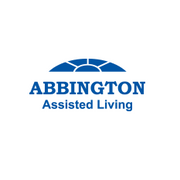
Getting the right amount of sleep is important for maintaining a healthy lifestyle and aging well. Unfortunately, as people grow older, a good night’s rest often becomes more difficult to achieve. Understanding why this is and how to protect your sleep quality can help improve your overall well-being. The following information from senior care professionals is intended to help you better understand sleep management.
How Does Aging Affect Rest?
The natural aging process brings a variety of changes to sleep. For one, sleep patterns tend to shift. Older adults frequently take daytime naps, which can make it harder to fall asleep at night. It also becomes more challenging to remain in a deep sleep, as many seniors wake up several times a night.
Another change that happens is with the circadian rhythm, which acts as the body’s internal clock. This heavily influences a person’s sleep-wake cycle, and when it gets disrupted, seniors are more likely to go to sleep earlier and wake up earlier, often shortening their duration of rest.
What Are Some Common Sleep Complications in Seniors?

Sleep problems are a common occurrence among older adults, causing them to get less sleep than they need. This can be due to chronic pain or conditions such as restless leg syndrome, sleep apnea, and REM behavior disorder. The need to get up in the night to use the bathroom increases with age as well.
Insomnia also contributes to poor sleep routines in seniors, which is typically found to coexist with different medical, psychiatric, or neurological disorders. Additionally, many medications that the elderly frequently take can disrupt sleep, including diuretics, oral corticosteroids, antidepressants, levodopa for Parkinson’s disease, and donepezil for Alzheimer’s disease.
How Can You Get Better Sleep?
Fortunately, there are several steps you and your senior care team can take to help promote better sleep. For example, sticking to a consistent sleep routine where you go to bed and wake up at the same time every day will train you to fall asleep more easily. It also helps to cut back on caffeine and alcohol intake, limit how much you sleep during the day, and get regular exercise. You may also consider eliminating screentime before bed, as this can stimulate the brain and make it more difficult to sleep.
Abbington Assisted Living is proud to provide senior care throughout Columbus, Pickerington, Powell, Chillicothe, and Coshocton, OH. Abbington senior living communities are one-story buildings that are designed with comfort and security in mind, offering comprehensive nursing care services in a compassionate, comfortable, and cost-effective manner. Please visit our website or call us directly at (614) 451-4575 in Columbus, (614) 577-0822 in Pickerington, (614) 789-9868 in Powell, (740) 773-4630 in Chillicothe, or (740) 623-4600 in Coshocton.
About the Business
(3 reviews)
Have a question? Ask the experts!
Send your question

